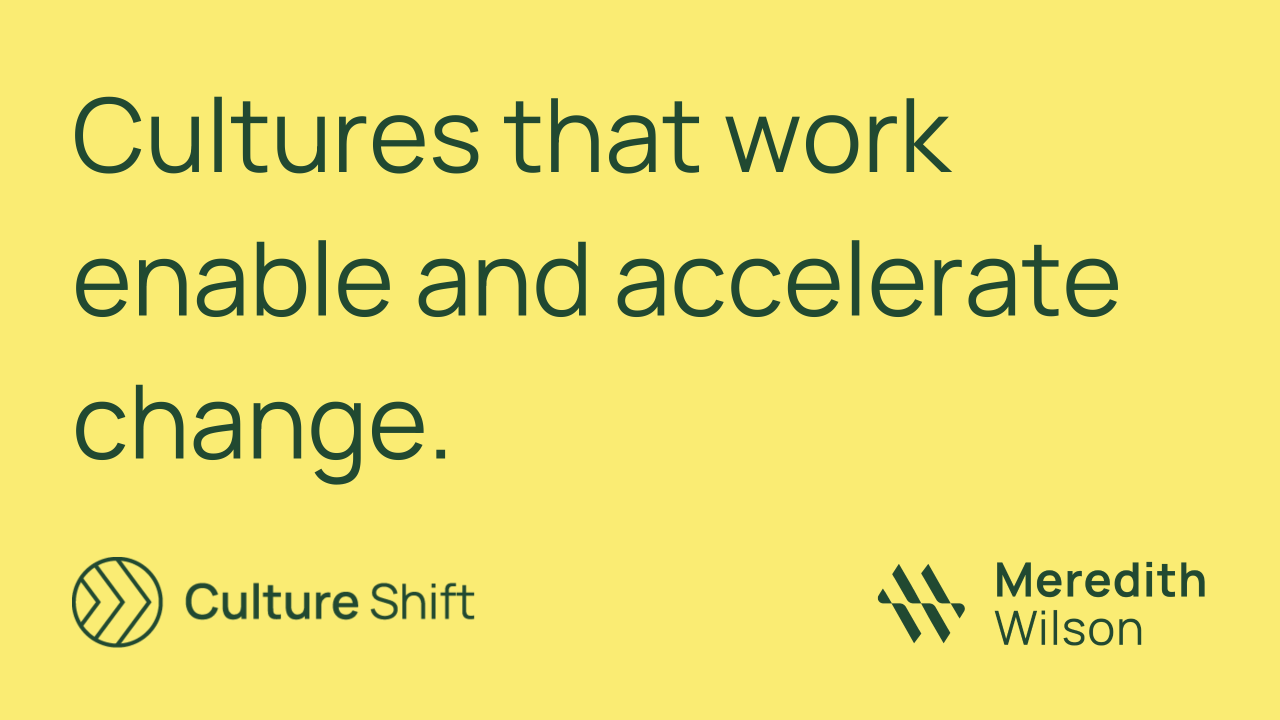Cultures that work enable and accelerate change.
Apr 12, 2024
I’m in the business of cultures that work.
A culture that works isn’t about free lunches or flashy perks—it’s about creating an environment where people thrive, teams perform, and organisations adapt to whatever comes next. It’s the kind of culture people want to stick around for because it works for them.
You can tell a culture is working when people feel they belong and can bring their best to work. When was the last time you asked your team if they feel connected—to each other and to your organisation’s purpose? A culture that works ensures people feel safe and hopeful about the future, while also allowing them to learn, fail, grow, and develop mastery. Are you fostering an environment where individuals feel empowered to stretch and grow?
Cultures that work are more than a sum of their parts. They harness the collective effort of individuals working toward shared goals, enabling autonomy and genuine choice. Is your team aligned and able to work independently toward common outcomes, or is too much time spent navigating internal roadblocks?
The Impact of Cultures That Work
Research from the Institute for Corporate Productivity (i4cp) highlights the tangible benefits of healthy cultures: they are three times more collaborative, 2.5 times more innovative, and 2.5 times more likely to view failure as an opportunity to learn and grow.
Healthy cultures don’t just drive better outcomes; they build adaptability and resilience. How does your culture handle setbacks or surprises? Is failure treated as an opportunity to learn, or as something to be avoided at all costs?
When Cultures Work Against You
You know a culture is working against you when energy is wasted on the wrong things. How much of your team’s time is spent doing business with yourselves instead of your customers? Broken cultures often force people into political environments where they spend more time smoothing the way than doing the work. Does your culture encourage collaboration, or does it reward managing up and navigating power dynamics?
In cultures that don’t work, workarounds focus on the wrong things for the wrong reasons, and even the best systems can’t compensate. On the other hand, cultures that work adapt and innovate even when systems fall short.
Making Culture Work
Cultures that work enable better decision-making, foster adaptability, and create a sense of purpose. They make work meaningful and worth doing.
If your culture isn’t working, ask yourself: where are the gaps? What’s one shift you can make today to align your culture with the outcomes you want to see? Sometimes, it’s not about overhauling everything at once—it’s about identifying the everyday actions that will make a difference.
Try This Experiment
Consider how your organisation recognises success. Are your awards meaningful? Are you rewarding the right behaviours?
Try shifting the value of your awards—not in terms of cost, but in terms of significance. Create ceremonies or moments that feel authentic and accessible. For example, could an informal, team-led recognition event replace a traditional awards dinner? Most importantly, ask yourself: What behaviour are we actually rewarding? If you’re celebrating the wrong things, start by shifting the focus.
When a culture works, it enables and accelerates change. It’s not about perfection—it’s about progress. Let’s work together to make your culture one that works for everyone.

